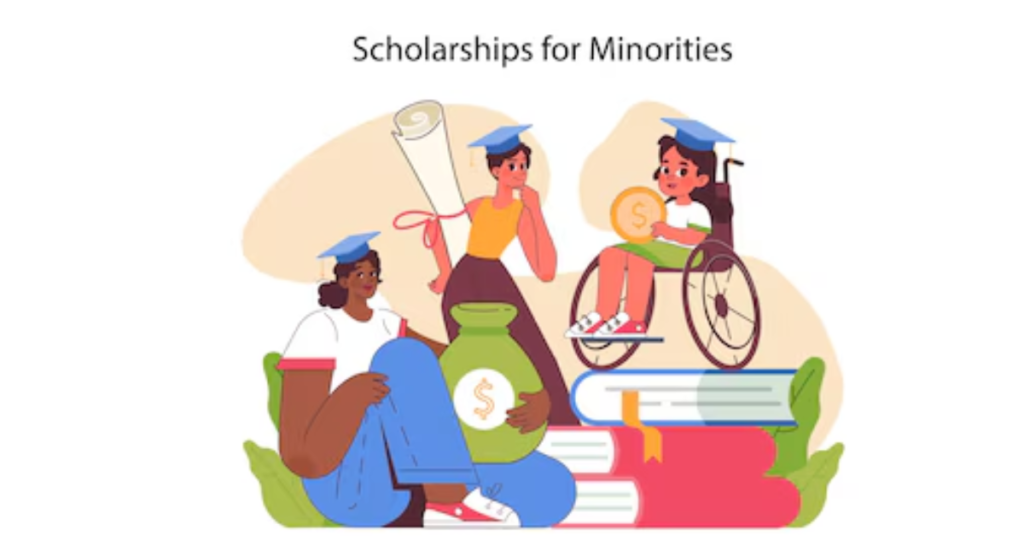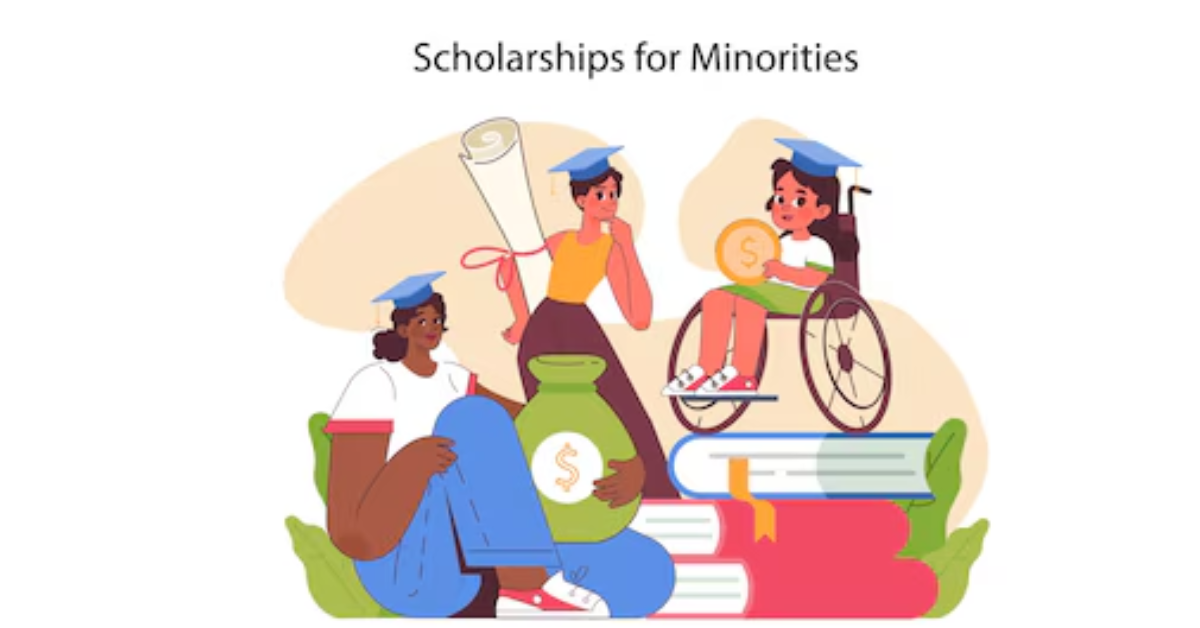Higher education is a gateway to opportunity, yet the rising costs of college can make it challenging for many students, especially those from minority communities. Scholarships designed specifically for minority groups play a crucial role in alleviating these financial pressures, ensuring that education remains accessible to all. These scholarships are not only essential for easing financial burdens but also for promoting diversity and equity in academic institutions.

Why Scholarships for Minority Students Matter
Minority students often face unique obstacles when it comes to accessing higher education, from socioeconomic disadvantages to underrepresentation in certain academic fields. Scholarships that target these students are vital in addressing these disparities and ensuring that talented individuals from all backgrounds have the opportunity to pursue a college degree.
These scholarships serve multiple purposes. Beyond providing financial assistance, they contribute to creating a diverse and inclusive environment in universities, where students of all backgrounds can share their perspectives. A more diverse student body enhances learning experiences and helps break down cultural barriers, preparing all students for success in an increasingly global society.
Types of Minority Scholarships Available
There are many scholarships available to undergraduate students from minority backgrounds. Some are based on ethnicity, others on gender or career interests. Here are some common types of scholarships designed to support minority students.
1. Ethnicity-Based Scholarships
Scholarships based on ethnicity are among the most common. They are designed to support students from specific ethnic groups, such as African American, Latino, Native American, and Asian students. These scholarships aim to address the historical underrepresentation of these groups in higher education.
Example: Jackie Robinson Foundation Scholarship
Named after the groundbreaking baseball legend, this scholarship is awarded to minority students who demonstrate financial need, academic excellence, leadership, and a commitment to community service.
2. Scholarships for Minority Women
In addition to ethnic minority scholarships, there are specific scholarships designed to support minority women. These scholarships often focus on encouraging women to pursue degrees in fields where they are traditionally underrepresented, such as science, technology, engineering, and mathematics (STEM).
Example: The Google Women of Color in STEM Scholarship
This scholarship supports minority women pursuing degrees in technology-related fields. It offers financial aid and mentorship opportunities to help women of color excel in the tech industry.
3. Career and Professional Scholarships for Minorities
Many scholarships are available for minority students pursuing degrees in specific fields, such as law, medicine, education, or business. These scholarships are aimed at increasing diversity within various professions and providing students with the resources needed to succeed in their chosen careers.
Example: The Thurgood Marshall College Fund
This program offers financial support to African American students pursuing degrees in law and public policy. It is designed to help develop future leaders in legal and governmental sectors.
4. Community-Based and Local Scholarships
Local and community organizations often offer scholarships to minority students within their region. These scholarships are typically aimed at students who demonstrate leadership, community service, and a commitment to giving back to their local community.
Example: Hispanic Scholarship Fund (HSF)
HSF provides scholarships to Latino students across the United States. The program offers financial support as well as career development opportunities, including internships, leadership training, and networking events.
Steps to Applying for Minority Scholarships
The process of applying for scholarships can be both competitive and time-consuming. However, with the right strategy, you can increase your chances of securing financial aid. Here’s a step-by-step guide to help you navigate the application process.
1. Start Your Search Early
The earlier you begin your scholarship search, the better. Many scholarships have early deadlines, and starting your search in your junior year of high school can give you a head start. It also allows you ample time to gather the required materials, such as recommendation letters and essays.
2. Utilize Scholarship Search Tools
There are several online platforms that allow you to search for scholarships based on your ethnicity, field of study, or location. Websites like Fastweb, Cappex, and the College Board’s Scholarship Search are excellent tools for finding minority scholarships that match your qualifications.
3. Tailor Your Applications
Each scholarship application is unique, so it’s important to tailor your responses to the specific criteria of each program. Highlight your personal achievements, your connection to the scholarship’s mission, and how you plan to use your education to contribute to your community or field.
4. Secure Strong Recommendations
Many scholarships require letters of recommendation from teachers, mentors, or employers. Be sure to ask individuals who know you well and can speak to your strengths, character, and academic potential. A compelling recommendation can make a significant difference in the selection process.
5. Keep Track of Deadlines
Applying for multiple scholarships can be overwhelming, but staying organized is key. Create a system for tracking deadlines, submission requirements, and necessary documents. Missing a deadline or submitting an incomplete application can disqualify you from receiving aid, so attention to detail is critical.
Prominent Minority Scholarships
While there are thousands of scholarships available to minority students, a few programs have gained national recognition for their impact and success in helping students achieve their educational goals. Here are some of the most prominent scholarships for minority students.
1. The Gates Scholarship
Funded by the Bill and Melinda Gates Foundation, this program offers full-ride scholarships to outstanding minority students with financial need. It covers tuition, fees, room, board, and other costs for students attending accredited universities across the United States.
2. The UNCF Scholarships
The United Negro College Fund (UNCF) is one of the largest providers of scholarships for African American students. It offers several programs, including the UNCF General Scholarship, which provides financial support based on academic performance, leadership, and community service.
3. The APIA Scholarship Program
The Asian & Pacific Islander American Scholarship Fund (APIASF) offers scholarships to students of Asian or Pacific Islander descent who demonstrate academic achievement and leadership potential. These scholarships support students with financial need and encourage them to give back to their communities.
Maximizing Your Scholarship Potential
With the competition for scholarships growing every year, it’s important to set yourself apart as a standout candidate. Here are some strategies to help you strengthen your scholarship applications:
1. Focus on Academics
Scholarship committees often prioritize academic performance, so maintaining a strong GPA and enrolling in challenging courses can significantly boost your chances of receiving an award. Demonstrating academic excellence shows your commitment to education and your potential for success in college.
2. Show Leadership and Community Involvement
Many scholarships seek candidates who exhibit leadership qualities and a dedication to making a positive impact on their communities. Participate in extracurricular activities, volunteer, and take on leadership roles in organizations to highlight your contributions outside the classroom.
3. Write a Compelling Personal Essay
Your personal essay is your chance to tell your story and explain why you deserve the scholarship. Be authentic, and use this opportunity to share the challenges you’ve overcome, your aspirations, and how the scholarship will help you achieve your long-term goals.
4. Apply to Multiple Scholarships
Don’t limit yourself to applying for just one or two scholarships. Cast a wide net and apply for as many scholarships as possible, including smaller, less competitive awards. Even small scholarships can add up and make a significant difference in covering college expenses.
Conclusion
Undergraduate scholarships for minority students are an essential resource for making higher education more accessible and affordable. By applying for these scholarships, minority students can reduce the financial burden of college and gain access to valuable resources and networks that will support their academic and professional growth.
With careful planning, attention to detail, and persistence, minority students can secure the scholarships they need to turn their college dreams into reality. Take advantage of these opportunities and invest in your future through education.
